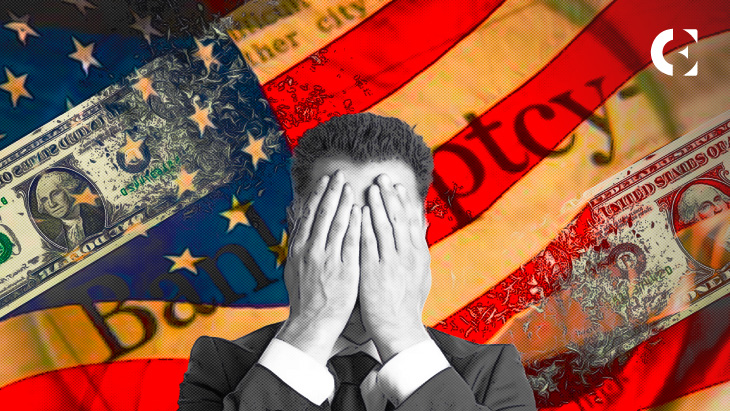- Crypto companies contribute to the increased bankruptcy rate.
- Digital Currency Group reported a $1.1 billion loss for the 2022 financial year.
- 97% of Voyager’s customers agree to the Binance US takeover.
A recent research report from ZeroHedge revealed that the troubling trend of bankruptcy among US-based firms recently reached one of the highest levels compared to the past decade. And unfortunately, crypto-based companies made up a substantial percentage of the increase.
ZeroHedge noted that firms with above $50 million in liabilities filing for bankruptcy topped 20 in January, representing the highest in any other January dating back to 2010. It mentioned crypto lender Genesis Global Holdco alongside other leading companies that blew up recently.
On Tuesday, the parent company of Genesis, Digital Currency Group, reported a $1.1 billion loss for the 2022 financial year. The firm attributed most of its losses to its exposure to the now-defunct crypto firms — Three Arrows Capital (3AC) and Alameda Research.
In a related development, a move by the US arm of the largest crypto exchange, Binance.US, to acquire assets belonging to the bankrupt crypto lending firm Voyager Digital has been favored by 97% of Voyager’s customers.
According to a court document filed on February 28, a bankruptcy management agency surveyed Voyager’s 61,300 account holders with claims against the troubled crypto lender. The poll concluded that most users approved of the takeover by Binance’s US subsidiary.
However, in a court filing on February 22, the US Securities and Exchange Commission objected to the deal, arguing that Binance.US’s proposed purchase of Voyager’s assets could violate federal securities laws.
On the other hand, a recent analysis of over 50 players in the crypto industry showed that the sector spent a record-breaking $21.55 million on Washington lobbying. According to the report, the significant increase in lobbying spending suggests that the industry wants to gain more influence and support in response to increased regulatory scrutiny.
Disclaimer: The information presented in this article is for informational and educational purposes only. The article does not constitute financial advice or advice of any kind. Coin Edition is not responsible for any losses incurred as a result of the utilization of content, products, or services mentioned. Readers are advised to exercise caution before taking any action related to the company.










